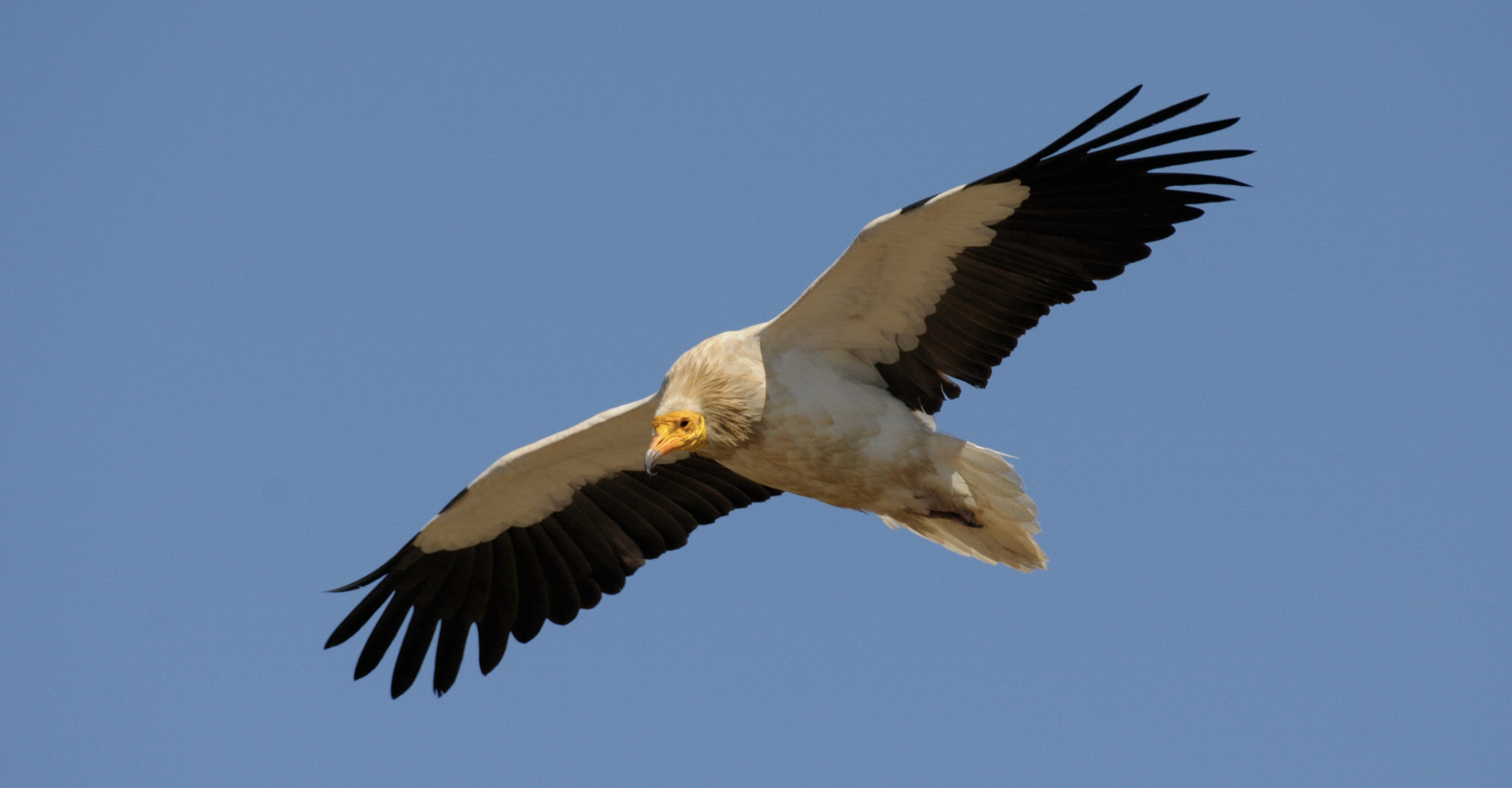
After traveling thousands of kilometres on their long migration from their Eurasian breeding grounds, Egyptian vultures, who overwinter in Africa and in the Arabian Peninsula, can often be seen in large numbers at sites you wouldn’t necessarily think of as being avian biodiversity hotspots – waste landfill sites.
Oman’s Landfill Sites
Landfill sites across states on the Arabian Peninsula, such as Oman’s Muscat engineered landfill, are important scavenging locations for Egyptian vultures during the winter months where they can find a plentiful supply of food. These globally-endangered vultures congregate in such numbers at these sites that they are becoming destinations for international visitors of the humankind, international birders.
The value of landfill sites to this endangered species is the subject of a new short documentary by filmmaker Enrico Gombala, who produced the film with us here at the Vulture Conservation Foundation (VCF), the Environment Society of Oman, International Avian Research (IAR) and Ostrava Zoo, in collaboration with be’ah (Oman Environmental Services Holding Company), and with in-kind donations from Arid Lands. The film aims to raise awareness about Egyptian vultures and other endangered scavenging birds in Oman and the important link between human efforts to manage waste and vulture conservation.
Collaborating for Vultures
The Environment Society of Oman, which was founded in 2004 (the first of its kind for Oman), has been collaborating with IAR and the Bernd Meyburg Foundation for Raptor Research and Conservation to gather comprehensive information on vultures in Oman and the threats they face, which include consumption of hazardous material at poorly managed rubbish dumps.
The film is released as Oman undergoes an upgrading of its waste management system nationally. be’ah is closing down more than 300 traditional dump sites and replacing them with 10 modern engineered landfills. While this will result in changes in the distribution of food for vultures across the Sultanate, it should also result in the food being safer for the birds as toxic material is being segregated and disposed of better.
Dr. Michael McGrady from IAR said:
“The documentary gives viewers some insight into the dire conservation situation vultures face on a global scale, and why Oman is important to their survival.”.
Maïa Sarrouf Willson, Research and Conservation Manager at ESO added:
“We are eager to partner with interested organizations in Oman and around the world in raising vulture awareness and implementing conservation actions.”.
Petr Colas, the Zoo Ostrava director, expressed
“his enormous satisfaction for being able to support and being involved in this conservation initiative”
According to Dr. José Tavares, Director of the VCF,
“the movie will be used as part of VCF’s efforts to engage the wider public with the issues facing the Egyptian vulture in Oman and elsewhere”.
For all the partners involved we hope this film will ultimately increase fundraising opportunities and forge alliances between conservation partners to help protect and conserve the Egyptian vulture in Oman and beyond.


